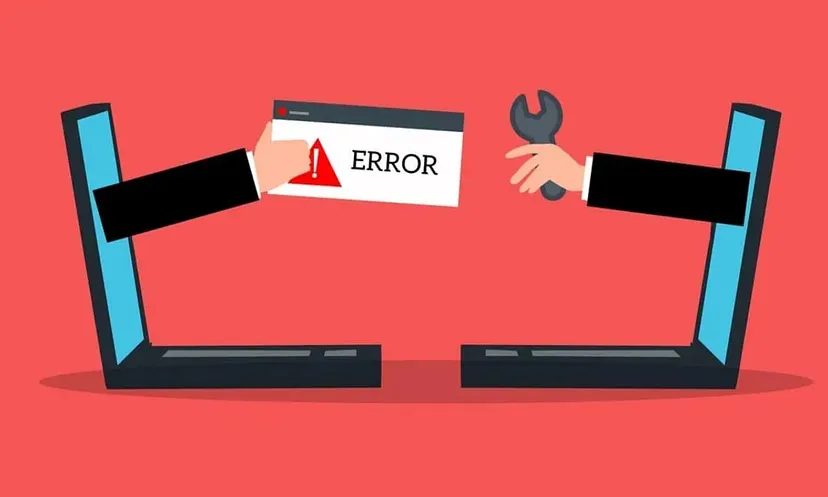Decoding Gen Z Slang: A Fun Dive into Modern Lingo
Have you ever found yourself scratching your head at some of the phrases young people use today? If you’ve ever heard “sus” or “lit” and felt completely out of the loop, you’re not alone. Welcome to the world of Gen Z slang, where language evolves at the speed of light, and keeping up can feel like a full-time job. But don’t worry—this guide will help you navigate the linguistic labyrinth of Generation Z. Let’s dive in!
Why is Gen Z Slang So Unique?
Gen Z, those born roughly between the mid-1990s and early 2010s, are digital natives. They’ve grown up with the internet, smartphones, and social media as integral parts of their lives. This constant connectivity has significantly influenced their communication style. Unlike previous generations, Gen Z’s slang evolves in real-time, driven by online trends, memes, and cultural shifts.
The Influence of Social Media
Platforms like TikTok, Instagram, and Twitter play a huge role in the dissemination of slang. A catchy phrase or a humorous video can go viral overnight, spreading new words and phrases across the globe. Social media influencers and celebrities also contribute to Gen Z Slang this ever-changing lexicon, coining terms that quickly become part of everyday speech.
Popular Gen Z Slang Terms
1. Sus
“Sus” is short for “suspicious” or “suspect.” It gained popularity from the online multiplayer game “Among Us,” where players use it to describe someone they think is acting shady or suspicious.
Example: “He’s been acting really sus lately, always disappearing at odd times.”
2. Lit
“Lit” describes something that’s exciting or excellent. Gen Z Slang It can refer to a great party, a fantastic event, or even an amazing performance.
Example: “That concert last night was so lit!”
3. Tea
“Tea” means gossip or news. When someone says “spill the tea,” they’re asking for the latest scoop or juicy details.
Example: “Did you hear the tea about Sarah and Mike? They broke up!”
4. Stan
“Stan” is a term for an overzealous or obsessive fan of a particular celebrity or public figure. The word originates from the Eminem song “Stan,” which tells the story of an obsessive fan.
Example: “I totally stan Taylor Swift. Her new album is amazing!”
5. Salty
Being “salty” means being bitter or upset, often over something minor. It’s a playful way to describe someone who’s acting a bit sour.
Example: “Why are you so salty about losing the game? It’s just for fun.”
The Evolution of Slang: From Boomers to Gen Z
Language has always evolved with each generation, reflecting cultural changes and societal trends. Baby Boomers had their “groovy” and “far out,” while Gen X introduced terms like “gnarly” and “whatever.” Millennials brought us “chill” and “bae.” Now, Gen Z is adding their unique twist, and it’s fascinating to see the linguistic progression.
The Role of Memes and Viral Content
Memes and viral content are crucial in the spread of Gen Z slang. A funny image or video can introduce new phrases into the lexicon almost instantaneously. These memes often reflect current events, pop culture, and social issues, making the slang not just a form of communication but a way to comment on and engage with the world.
Example: “Ok Boomer”
“Ok Boomer” is a dismissive retort used by Gen Z to reject attitudes or opinions associated with the Baby Boomer generation. It became a viral meme and is often used to highlight generational differences.
Example: “You don’t understand why we spend so much time on our phones? Ok Boomer.”
How to Keep Up with Gen Z Slang
Staying updated with the latest slang can be a fun way to engage with younger generations and stay connected to evolving culture. Here are a few tips to keep up:
1. Follow Social Media Trends
Keep an eye on platforms like TikTok, Twitter, and Instagram. These sites are often where new slang terms first appear and gain popularity.
2. Engage with Younger People
Interacting with Gen Zers, whether they’re family members, friends, or colleagues, can provide insights into the latest trends. Ask them about the terms they use and what they mean.
3. Use Online Resources
Websites and online dictionaries dedicated to slang can be valuable resources. Urban Dictionary, for example, is a user-generated dictionary of slang words and phrases.
The Fun and Flexibility of Slang
One of the best aspects of slang is its flexibility. Words can change meaning based on context, tone, and even geography. What’s considered cool and trendy in one area might be different in another. This fluidity makes slang a dynamic and ever-evolving part of language.
Example: “Cap” and “No Cap”
“Cap” means a lie, while “no cap” means truth or no lie. These terms are often used to emphasize honesty or call out dishonesty.
Example: “I got tickets to the game, no cap.”
Conclusion: Embracing the Slang
Gen Z slang might seem perplexing at first, but it’s a vibrant and creative expression of modern culture. By understanding and even using these terms, you can bridge generational gaps and connect more deeply with the young people in your life. Plus, it’s just plain fun! So next time you hear a new phrase, don’t be afraid to ask about it. Who knows, you might find yourself adding a few new words to your own vocabulary.
Have you ever found yourself scratching your head at some of the phrases young people use today? If you’ve ever heard “sus” or “lit” and felt completely out of the loop, you’re not alone. Welcome to the world of Gen Z slang, where language evolves at the speed of light, and keeping up can feel like a full-time job. But don’t worry—this guide will help you navigate the linguistic labyrinth of Generation Z. Let’s dive in!
Why is Gen Z Slang So Unique?
Gen Z, those born roughly between the mid-1990s and early 2010s, are digital natives. They’ve grown up with the internet, smartphones, and social media as integral parts of their lives. This constant connectivity has significantly influenced their communication style. Unlike previous generations, Gen Z’s slang evolves in real-time, driven by online trends, memes, and cultural shifts.
The Influence of Social Media
Platforms like TikTok, Instagram, and Twitter play a huge role in the dissemination of slang. A catchy phrase or a humorous video can go viral overnight, spreading new words and phrases across the globe. Social media influencers and celebrities also contribute to this ever-changing lexicon, coining terms that quickly become part of everyday speech.
Popular Gen Z Slang Terms
1. Sus
“Sus” is short for “suspicious” or “suspect.” It gained popularity from the online multiplayer game “Among Us,” where players use it to describe someone they think is acting shady or suspicious.
Example: “He’s been acting really sus lately, always disappearing at odd times.”
2. Lit
“Lit” describes something that’s exciting or excellent. It can refer to a great party, a fantastic event, or even an amazing performance.
Example: “That concert last night was so lit!”
3. Tea
“Tea” means gossip or news. When someone says “spill the tea,” they’re asking for the latest scoop or juicy details.
Example: “Did you hear the tea about Sarah and Mike? They broke up!”
4. Stan
“Stan” is a term for an overzealous or obsessive fan of a particular celebrity or public figure. The word originates from the Eminem song “Stan,” which tells the story of an obsessive fan.
Example: “I totally stan Taylor Swift. Her new album is amazing!”
5. Salty
Being “salty” means being bitter or upset, often over something minor. It’s a playful way to describe someone who’s acting a bit sour.
Example: “Why are you so salty about losing the game? It’s just for fun.”
The Evolution of Slang: From Boomers to Gen Z
Language has always evolved with each generation, reflecting cultural changes and societal trends. Baby Boomers had their “groovy” and “far out,” while Gen X introduced terms like “gnarly” and “whatever.” Millennials brought us “chill” and “bae.” Now, Gen Z is adding their unique twist, and it’s fascinating to see the linguistic progression.
The Role of Memes and Viral Content
Memes and viral content are crucial in the spread of Gen Z slang. A funny image or video can introduce new phrases into the lexicon almost instantaneously. These memes often reflect current events, pop culture, and social issues, making the slang not just a form of communication but a way to comment on and engage with the world.
Example: “Ok Boomer”
“Ok Boomer” is a dismissive retort used by Gen Z to reject attitudes or opinions associated with the Baby Boomer generation. It became a viral meme and is often used to highlight generational differences.
Example: “You don’t understand why we spend so much time on our phones? Ok Boomer.”
How to Keep Up with Gen Z Slang
Staying updated with the latest slang can be a fun way to engage with younger generations and stay connected to evolving culture. Here are a few tips to keep up:
1. Follow Social Media Trends
Keep an eye on platforms like TikTok, Twitter, and Instagram. These sites are often where new slang terms first appear and gain popularity.
2. Engage with Younger People
Interacting with Gen Zers, whether they’re family members, friends, or Gen Z Slang colleagues, can provide insights into the latest trends. Ask them about the terms they use and what they mean.
3. Use Online Resources
Websites and online dictionaries dedicated to slang can be valuable Gen Z Slang resources. Urban Dictionary, for example, is a user-generated dictionary of slang words and phrases.
The Fun and Flexibility of Slang
One of the best aspects of slang is its flexibility. Words can change meaning based on context, tone, and even geography. What’s considered cool and trendy in one area might be different in another. This fluidity makes slang a dynamic and ever-evolving part of language.
Example: “Cap” and “No Cap”
“Cap” means a lie, while “no cap” means truth or no lie. Gen Z Slang These terms are often used to emphasize honesty or call out dishonesty.
Example: “I got tickets to the game, no Gen Z Slang cap.”
Conclusion: Embracing the Slang
Gen Z slang might seem perplexing at first, but it’s a vibrant and creative expression of modern culture. By understanding and even using these terms, you can bridge generational gaps and connect more deeply with the young people in your life. Plus, it’s just plain fun! So next time you hear a new phrase, don’t be afraid to ask about it. Who knows, you might find yourself adding a few new words to your own vocabulary.




Post Comment